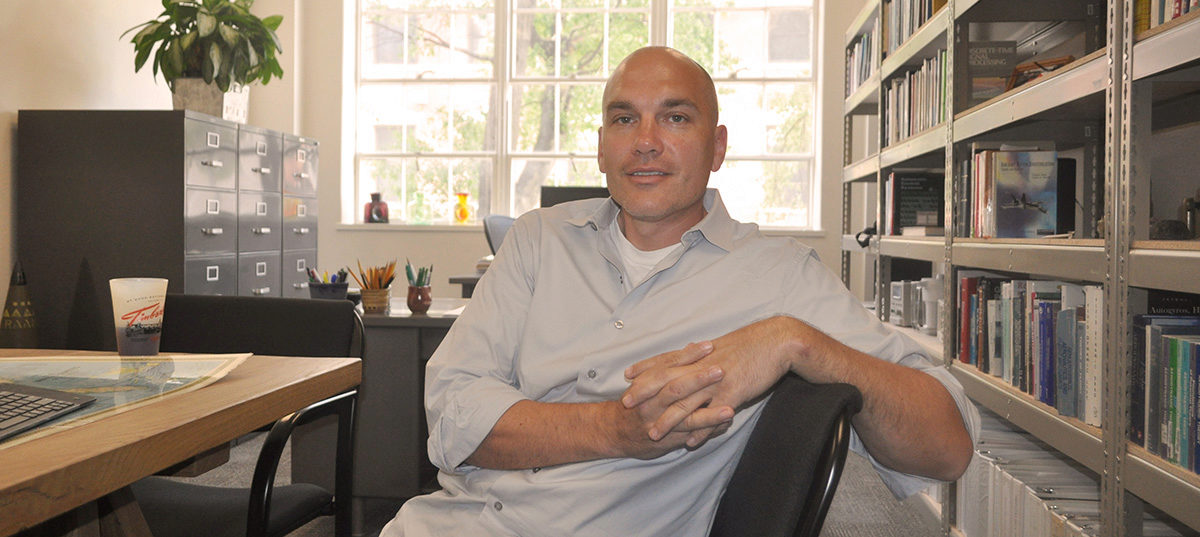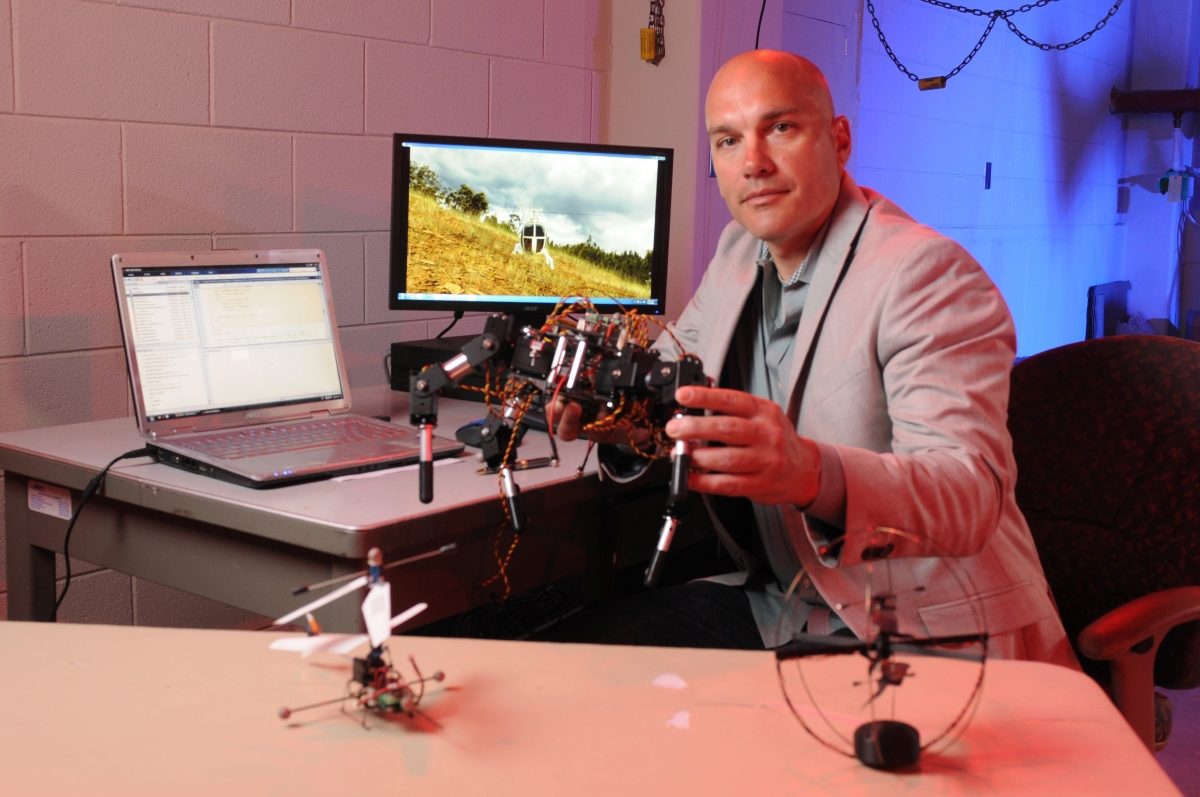
The recently installed chair of the Daniel Guggenheim School of Aerospace Engineering grew up a world away from rocket science, in a working-class neighborhood of Philadelphia. Mark Costello liked math, did well in school, and earned pocket money landscaping at local apartment complexes. He didn't harbor a burning desire to fly to the moon or to design cutting-edge aircraft. Like a lot of students who come to Tech each year, he simply worked hard and followed his love of math to its natural endpoint.
"I had to declare a major sophomore year at Penn State. It came down to selecting between electrical engineering and aerospace engineering, but in the end I chose aerospace engineering. It had a lot of math and it just seemed really cool," he says. "I liked the questions I got to ask, the problems I had to solve. And, as a grad student at Tech, I really loved the research projects and the opportunity to invent.That's never stopped being the case."
Those same sentiments hold true today, as Costello begins his tenure as chair. Looking forward, he plans to ask hard questions of the faculty, staff, and students, cultivate respectful debate, and work hard to implement changes that will build on the School's rich history.
He expects it will be challenging, but that doesn't put him off. He's butted his head against some pretty tough research problems over the last 30 years.Hard work and persistence have never steered him wrong.
He also expects it will be rewarding.
"My role, as the chair, is to help our faculty, students, and staff to succeed. My job is to set the stage for their success.That is a very honorable role. I look forward to it."
And, he knows, sometimes it will be just plain tough.
"I plan to keep up some of my research, because that keeps me fresh," he says. "But when it gets really tough, well, then I'll just go out to my Locke Triplex lawnmower. Tinker with it or mow the lawn. Whichever I do, it's a great excuse to just put the world behind me and think."
Since he likes questions, we posed him a few the day he moved into the AE Chair's Office.
1. You've established monthly Office Hours with the Chair for undergraduates, graduate students, and research engineers. What do you hope to gain from these drop-in sessions?
I'm looking for unfiltered feedback on what the AE School is doing now, and on what we should do in the future. What's working well? What needs to change? What changes have worked? The best way to get that perspective is to ask the students.
2. You’ve done a lot of work with unmanned aerial vehicles (UAVs). What trends in UAV development do you find most interesting?
UAVs will be increasingly autonomous and able to operate for longer periods without human intervention. I think you can see their potential impact in the work that Prof. Brian German is doing in urban air mobility. UAVs are really poised to take their place in the transportation infrastructure of our cities.
3. For a year before you became the AE Chair, you worked as a program manager for the Defense Advanced Research Projects Agency (DARPA). What did you gain from that experience?
Working at DARPA, I observed, first-hand, the internal process of how the government selects and funds research topics. As researchers we often assume that research programs just pop up.The reality is that launching a government research program is a lot of work and program managers must convince a diverse set of stakeholders that their idea of worthy of taxpayer dollars.
4. You started and managed two aerospace-related businesses - Earthly Dynamics and Persimia. How did this experience contribute to your perspective as an academic, a researcher, and an administrator?
It tuned me onto the practical aspects of transitioning technology from a research paper to a product. There are many demands that the market places on even the most brilliantly engineered concept. You need to anticipate these types of hurdles if you want that concept to become a product or service. My experience in this area has made me a better engineer all-around.
5. What is your philosophy of leadership?
I strive to be a servant leader - someone who will make it possible for others to excel. As chair, this means I'll be actively working with, and listening to, the AE faculty, staff, and students for ideas. I also believe strongly in work-life balance as a practical way of promoting innovative ideas and good leadership.
6. What do you think the most underappreciated (overlooked) aspect of the AE School is?
Our people. I think we sometimes forget how lucky we all are to work with such great faculty, students, and staff. I got a good perspective on this when I came back from DARPA as a candidate for the chair position. I was able to hear the thoughts, visions, concerns, and excitement that our students, faculty, and staff have for the AE School.
7. What’s one experience that every undergrad (and grad) should try to have before they graduate?
For undergraduates, it's undoubtedly research. For graduate students, it's the experience of preparing and giving a lecture. The Brown Bag Lunch series at AE has been a great opportunity to practice this, but we've also had a lot of students presenting papers at conferences.
8. If you had not studied aerospace engineering, what would you have studied (and why)?
Oceanography.The ocean seems like another world.
9. Where was the best place you ever vacationed, and why?
I particularly enjoyed traveling to Chile. There are very few English speakers, which made it a challenge to do just about everything, which also made it kind of fun.
10. What’s on your bucket list?
Too much to list. But one item is to experience a sand storm. Just once. Another is to visit all countries in Europe. I'm about one-third of the way done with that one. Prior to that, I wanted to step foot in all 50 states, which is checked off.
